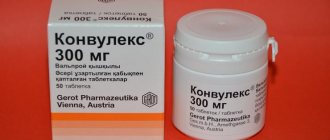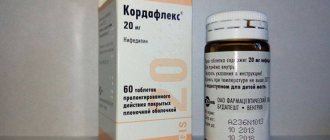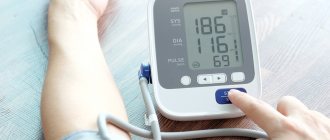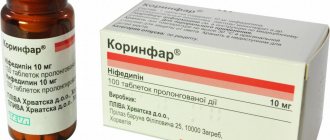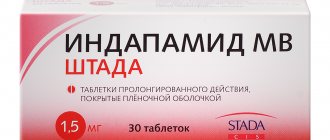Home | About us | Delivery | Advertisers | Login | Registration
- Medicines
- dietary supplementsVitamins
- Categories from A to Z
- Brands from A to Z
- Products from A to Z
- Medical equipment
- beauty
- Child
- Care
- Honey products appointments
- Herbs and herbal teas
- Medical nutrition
- Journey
- Making medicinesStock
Pharmacy online is the best pharmacy in Almaty, delivering medicines to Almaty. An online pharmacy or online pharmacy provides the following types of services: delivery of medicines, medicines to your home. Online pharmacy Almaty or online pharmacy Almaty delivers medicines to your home, as well as home delivery of medicines in Almaty.
my basket
Apteka84.kz is an online pharmacy that offers its customers medicines, medicinal and decorative cosmetics, dietary supplements, vitamins, baby food, intimate products for adults, medical equipment and thousands of other medical and cosmetic products at low prices. All data presented on the Apteka84.kz website is for informational purposes only and is not a substitute for professional medical care. Apteka84.kz strongly recommends that you carefully read the instructions for use contained in each package of medicines and other products. If you currently have any symptoms of the disease, you should seek help from a doctor. You should always tell your doctor or pharmacist about all the medicines you take. If you feel you need further help, please consult your local pharmacist or contact our GP online or by telephone.
© 2012 Pharmacy 84.
Depakine chrono
Active substance:
Valproic acid*
Pharmgroup:
Antiepileptic drugs
Average price in pharmacies
| Name | Manufacturer | average price |
| Depakine Chronosphere 0.1 n30 Pak Gran Prolong Release | SANOFI RUSSIA | 559.00 |
| Depakine Chronosphere 0.75 n30 Pak Gran Prolong | SANOFI RUSSIA | 831.00 |
Analogs for the active substance:Valparin Valparin XP Depakin Depakin Chronosphere Depakine enteric 300 Dipromal Convulex Convulsofin Enkorat Encorat chrono | Application area:Bipolar disorder Bipolar disorders Bipolar disorders Bipolar psychosis Depressive episode of bipolar disorder Intermittent psychosis Affective insanity Manic-depressive syndrome Manic-melancholic psychosis Manic-depressive psychosis Mood disorders bipolar Cyclophrenia Circular psychosis |
special instructions
Before starting treatment and during the first 6 months of therapy, periodic monitoring of liver function is necessary, especially in patients at risk.
If a slight increase in the activity of liver enzymes is detected, especially at the beginning of treatment, it is recommended to conduct a more complete laboratory examination (including, in particular, determination of the prothrombin index) in order to correct the regimen if necessary; the examination should be repeated in the future.
Among the classical tests, the most important are those reflecting protein synthesis in the liver and especially the prothrombin index. If there is a significant decrease in the level of prothrombin, a marked decrease in the content of fibrinogen, blood clotting factors, an increase in the level of bilirubin and transaminases, treatment with Depakin Chrono should be suspended. If the patient is receiving salicylates at the same time, they should also be discontinued immediately, since salicylates and valproate have common metabolic pathways.
There are rare reports of severe cases of liver disease with fatal outcome. The high-risk group consists of children of the younger age group. With age, the frequency of such complications decreases.
In most cases, liver dysfunction was observed during the first 6 months of treatment, usually between 2 and 12 weeks, and most often with combination antiepileptic therapy.
Early diagnosis is based primarily on clinical examination. In particular, two factors that may precede jaundice should be taken into account, especially in patients at risk:
- nonspecific general symptoms, usually appearing suddenly, such as asthenia, anorexia, extreme fatigue, drowsiness, sometimes accompanied by repeated vomiting and abdominal pain;
- recurrence of epileptic seizures during antiepileptic therapy.
The patient, and if it is a child, then his family, should be warned about the need to immediately notify the doctor about the occurrence of these symptoms. In addition to clinical examination, liver function testing should be performed immediately in such cases.
In rare cases, severe forms of pancreatitis have been reported, sometimes with death. These cases were observed regardless of the patient's age and duration of treatment, although the risk of developing pancreatitis decreased with increasing age of the patients. Insufficiency of liver function in pancreatitis increases the risk of death.
Before starting therapy, before surgery, if spontaneous hematomas or bleeding occur, it is recommended to monitor the peripheral blood picture (with the number of platelets), determine the bleeding time and conduct coagulation tests.
In case of acute abdominal pain syndrome and symptoms such as nausea, vomiting and/or anorexia, immediate examination of the patient is necessary, and if the diagnosis of pancreatitis is confirmed, the drug should be discontinued.
When using Depakine Chrono in patients with renal failure
It is recommended to take into account the increased concentration of the free fraction of valproic acid in the blood plasma and reduce the dose.
If it is necessary to prescribe the drug to patients with systemic lupus erythematosus and other diseases of the immune system, the expected therapeutic effect and the possible risk of therapy should be assessed, since when using Depakine Chrono, disorders of the immune system were observed in extremely rare cases.
It is not recommended to prescribe the drug to patients with carbamide cycle enzyme deficiency. In such patients, several cases of hyperammonemia accompanied by stupor and/or coma have been described.
In children with unexplained symptoms from the digestive system (anorexia, vomiting, cases of cytolysis), a history of lethargy or coma, with mental retardation or a family history of death of a newborn or child, metabolic studies should be carried out before starting treatment with Depakin Chrono, especially ammonemia during fasting and after eating.
Patients should be warned of the risk of weight gain early in treatment and advised to follow a diet to minimize this effect.
Impact on the ability to drive vehicles and operate machinery
During the treatment period, patients must be careful when driving vehicles and other activities that require high concentration and speed of psychomotor reactions.
Side effects
The following side effects are possible when taking the drug:
- diarrhea;
- allergic reactions;
- vomit;
- Stevens-Johnson syndrome;
- decreased fibrinogen ;
- confusion;
- increased bleeding time;
- slight tremors ;
- vasculitis;
- weight gain;
- reversible Fanconi syndrome ;
- erythema multiforme;
- nausea;
- stomach ache;
- moderate hyperammonemia ;
- thrombocytopenia;
- hair loss;
- drowsiness;
- headache.
Symptoms are usually reversible and disappear after discontinuation of the drug.
In addition, in rare cases, the following side effects are possible:
- reversible parkinsonism ;
- toxic epidermal necrosis ;
- lethargy , which in some cases leads to transient coma ;
- macrocytosis;
- pancytopenia;
- kidney dysfunction;
- amenorrhea;
- disturbances in liver function;
- stupor;
- reversible dementia ;
- anemia;
- leukopenia;
- hearing loss;
- irregularity of the menstrual cycle;
- peripheral edema.
Compound
Active ingredients of the drug: sodium valproate and valproic acid .
In addition, Depakine Chrono 300 mg contains the following additional components: hypromellose 4000 , sodium saccharinate , talc , polyacrylate dispersion 30% , ethylcellulose , macrogol 6000 , titanium dioxide , hypromellose .
Depakine Chrono 500 mg, in turn, has such auxiliary ingredients as hypromellose 4000 , anhydrous colloidal silicon dioxide , titanium dioxide , sodium saccharinate , talc , hydrated colloidal silicon dioxide , macrogol 6000 , ethylcellulose , hypromellose , polyacrylate 30% .
Carrying a child and natural feeding
In women, Depakine can cause side effects during pregnancy. However, the appearance of epileptic seizures at this time can most likely lead to death for the expectant mother and fetus. Therefore, when prescribing treatment, the doctor must compare the possible risks.
The active substance valproate, according to available data, can have the following effects on fetal development:
- Quite often, from one to two percent of cases, it disrupts the development of the neural tube.
- Abnormal development of the face and malformations of the arms and legs (shortened limbs).
- Development of heart defects and vascular system.
In order to avoid side effects caused by Depakine in women, the drug can be prescribed by a doctor when carrying a child only in cases where the need for the expectant mother outweighs the risk to the child. If a woman is just planning to conceive a child, then she needs to reconsider the indications for the treatment of forms of epilepsy. During pregnancy, treatment for epilepsy with valproate should not be interrupted if it is effective. In such cases, doctors recommend reducing the effective dose per day to a minimum, which must be divided into several doses. In addition to existing therapy, folic acid can be prescribed, as it can reduce the likelihood of developing neural tube defects by several times.
Taking Depakine may have side effects for a newborn in the form of hemorrhagic syndrome. Unfortunately, cases of the spread of afibrinogenemia with a fatal outcome have also been recorded. Also, in children exposed to valproic acid in utero, the following consequences are noted:
- Reduced attention.
- Autism.
- Developmental delay.
- Problems with memory and learning.
All these risks are lower if a woman is given valproic acid monotherapy.
The penetration of valproate into breast milk is quite low, with concentrations between one and ten percent of serum drug levels. Expectant mothers can plan to breastfeed naturally during Depakine monotherapy, but the occurrence of adverse reactions, especially hematological disorders, cannot be ruled out. More often, doctors advise replacing this drug with a safer analogue or transferring the child to artificial feeding.
Is nausea possible in women as a side effect of Depakine? The answer is yes. Nausea is the most common adverse reaction of the body to volproic acid. This symptom is also observed in children. In pregnant women, nausea may increase in the presence of toxicosis. It often provokes profuse vomiting, loss of appetite, and general deterioration of the condition.
Indications for use
Adult patients are prescribed this drug for the treatment of:
- Lennox-Gastaut syndrome;
- generalized and partial epileptic seizures ;
- bipolar affective disorders.
Children are given Depakine Chrono for treatment:
- partial and generalized epileptic seizures ;
- Lennox-Gastaut syndrome.
Pharmacokinetics
Suction
Bioavailability of the drug is about 100%.
Compared with the enteric-coated dosage form, the sustained-release tablet formulation is characterized by no absorption latency, prolonged absorption, identical bioavailability, lower Cmax (approximately 25% reduction in Cmax), but with a more stable plateau phase from 4 to 14 hours after dosing, there is a more linear correlation between dose and drug plasma concentration.
Distribution
Plasma protein binding is high, dose-dependent and saturable. Distributed predominantly into the blood and extracellular fluid. Sodium valproate penetrates the cerebrospinal fluid and the brain.
An equilibrium state is achieved after 3-4 days of regular oral administration of the drug.
The therapeutic effectiveness of the drug is manifested at plasma concentrations from 40 to 100 mg/l. When the concentration of the active substance in plasma exceeds 200 mg/l, a dose reduction is necessary.
Metabolism and excretion
Metabolized by beta-oxidation and conjugation with glucuronic acid. It is excreted mainly in urine in conjugated form. T1/2 is 15-17 hours.
It is not an inducer of cytochrome P450 isoenzymes. Does not affect the degree of both its own biotransformation and the biotransformation of other substances, such as estrogens, progestogens and vitamin K antagonists.
Overdose
In case of acute overdose, coma with muscle hypotonia , miosis , metabolic acidosis , hyporeflexia and respiratory depression .
In addition, there are known cases of increased intracranial pressure due to cerebral edema . Death is also possible.
As treatment, gastric lavage is used, the cardiovascular and respiratory systems are carefully monitored, and effective diuresis . In serious situations, dialysis .
